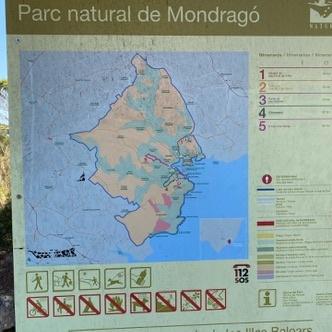What advice should travelers consider regarding water conservation when visiting Mallorca in peak tourist season?
Similar Topics
mallorca water conservation
peak tourist season
mediterranean climate
water-saving habits
sustainable tourism
hotel water measures
potable bottled water
responsible travel principles
When visiting Mallorca during the peak tourist season, it is important for travelers to be mindful of water conservation due to the island’s Mediterranean climate and limited freshwater resources. The summer months, which coincide with high tourist influx, often bring hot, dry weather that intensifies the demand on local water supplies. This increased consumption can strain the island’s infrastructure and affect both residents and ecosystems. Travelers can contribute positively by adopting simple water-saving habits, such as taking shorter showers, turning off taps while brushing teeth, and avoiding unnecessary water use in accommodations.
Many hotels and resorts in Mallorca have implemented water-saving measures, including low-flow showerheads and incentives for guests who reuse towels and bed linens. Travelers should support these initiatives by cooperating willingly and being conscious of their water usage. Additionally, when exploring the island, it’s best to drink bottled water rather than relying on tap water for refilling bottles, as potable tap water is not always guaranteed to be safe for all visitors. Being prudent with water extends beyond personal use; for example, swimming pools and landscaped areas in tourist facilities require substantial water, so enjoying natural attractions like beaches and parks responsibly helps reduce overall demand.
Ultimately, by practicing water conservation, visitors can help preserve Mallorca’s natural beauty and ensure a sustainable tourism experience for future travelers and local communities. This awareness of environmental impact aligns with responsible travel principles, allowing the island to continue providing a welcoming environment without depleting its precious resources. Being considerate of water use also deepens the travel experience, connecting visitors to the realities and challenges faced by Mediterranean destinations during busy seasons. In doing so, travelers participate in a collective effort to maintain the balance between enjoyment and sustainability on this beautiful island.
Many hotels and resorts in Mallorca have implemented water-saving measures, including low-flow showerheads and incentives for guests who reuse towels and bed linens. Travelers should support these initiatives by cooperating willingly and being conscious of their water usage. Additionally, when exploring the island, it’s best to drink bottled water rather than relying on tap water for refilling bottles, as potable tap water is not always guaranteed to be safe for all visitors. Being prudent with water extends beyond personal use; for example, swimming pools and landscaped areas in tourist facilities require substantial water, so enjoying natural attractions like beaches and parks responsibly helps reduce overall demand.
Ultimately, by practicing water conservation, visitors can help preserve Mallorca’s natural beauty and ensure a sustainable tourism experience for future travelers and local communities. This awareness of environmental impact aligns with responsible travel principles, allowing the island to continue providing a welcoming environment without depleting its precious resources. Being considerate of water use also deepens the travel experience, connecting visitors to the realities and challenges faced by Mediterranean destinations during busy seasons. In doing so, travelers participate in a collective effort to maintain the balance between enjoyment and sustainability on this beautiful island.
🧩 Related Questions
Related Question
In what ways do changes in salinity due to Atlantic water impact sea life around Mallorca?
Related Question
What tips do you recommend for travelers planning to explore the Palma to Valldemossa route?
Related Question
In what ways do Mallorcan naming customs highlight the importance of family and community ties?
